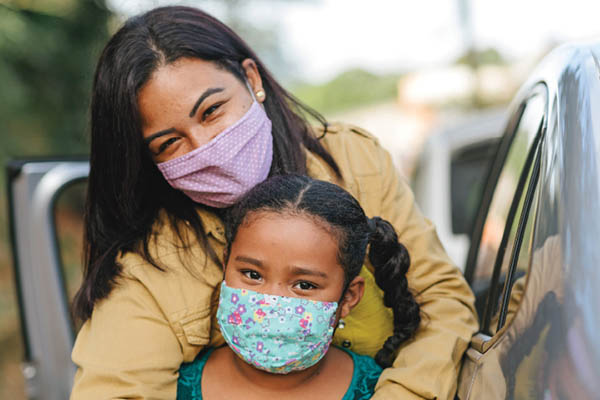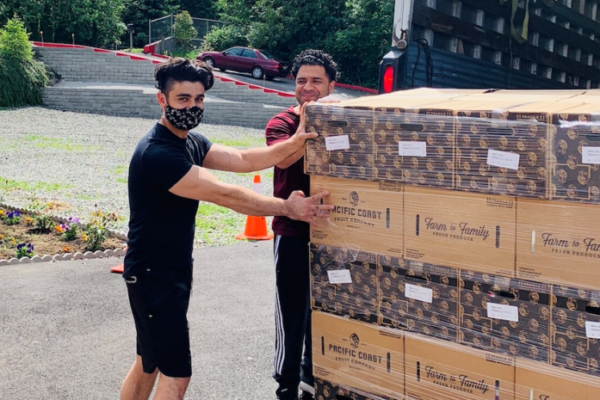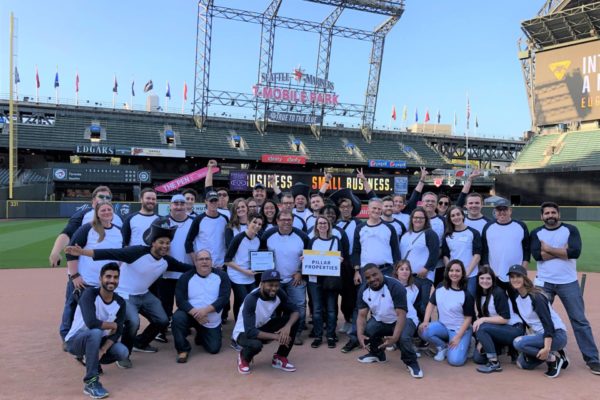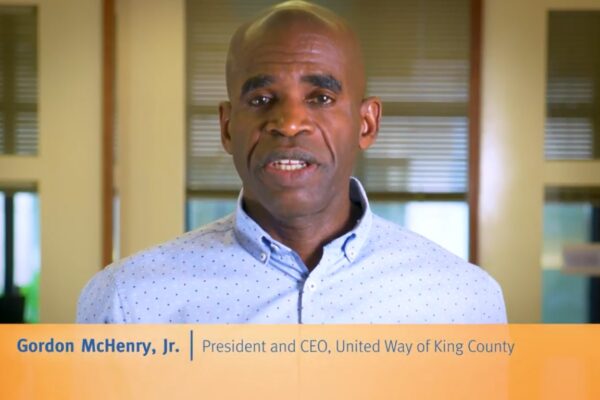Fighting the inequities of COVID-19
The inequities that this pandemic has laid bare are staggering. BIPOC communities (Black, Indigenous and people of color) have been hardest hit by the disease, unemployment and other financial hardship.
This is about centuries of oppression and racism—and people of color continuously not getting a fair shake.
For years, United Way of King County has worked to connect with isolated communities, partner with businesses and providers on some really innovative approaches and directly support those who know their communities best.
Yet, we recognize it hasn’t been enough—and Covid-19 has us doubling down.
We have dialed up our efforts around participatory funding, increased outreach efforts to connect with isolated, non-English speakers and are doing more direct service than ever.
Gordon McHenry, Jr., talks about United Way of King County’s role during the COVID 19 pandemic
Thanks to the collective impact of donor dollars, this is the progress that has been made in the last year:
- Black Community Building Collective is just one example of increasing our participatory funding approach.
This funding model cedes decision-making power around funding decisions. This group of 15 Black nonprofit leaders—who know their communities best—will determine how this funding is directed in order to support equitable recovery and long-term viability of King County’s Black community.
This approach is both innovative and proven—and creates new approaches by addressing historic inequities. Black staff at United Way have been instrumental in bringing the Collective together. To date, $1.5 million has been invested in Black-led organizations—and donor dollars are making a second year investment possible.
- Rental assistance. Because of established relationships with King County Bar Association, Urban League of Metropolitan Seattle, Wellspring Family Services and others, our team was able to move quickly from eviction prevention to rental assistance. More than 10,000 households have received assistance—and will avoid mounds of debt when the eviction moratoriums lift. More than 70% of people helped identify as BIPOC.
- Leveraging technology and existing food resources. To meet the need of people who cannot access food banks or grocery stores, we’re partnering with DoorDash, United Way Worldwide, Safeway and more than a dozen area food banks to provide weekly home delivery of food.
While this is a county-wide program, we’re intentional in our efforts to work with South King County partners where the need is greatest. By partnering with the likes of the Tukwila Pantry, Federal Way Multi-Service Center and Auburn Food Bank, we’re getting nutritious meals to where they’re needed most.
Each week a DoorDash driver is scheduled to pick up the food and deliver it to the home. We’ve grown the program from 780 households in the early months of the pandemic to 3,900.
- Helping to minimize the digital divide. This pandemic has shown how having an education can help you weather a financial storm. Yet students of color are repeatedly at a disadvantage with less access to technology—even in public schools. At United Way we start early, helping pre-K students prepare for success in school.
With financial support for tablets and internet access, home visitors were able to quickly move the twice-weekly visit format to virtual. Donor dollars allowed us to invest $300,000 early on in the pandemic in BIPOC-led ParentChild+ organizations so that they had flexible dollars to use as they were most needed. Much of it went to intergenerational households facing income loss due to COVID-19—from fixing a grandmother’s dryer to helping pay rent.
These are positive results in a very trying time—and we know there is much more work to do. With donor support, we will continue to prioritize people of color as a way to try to offset the long-term inequities and racism.





Comments